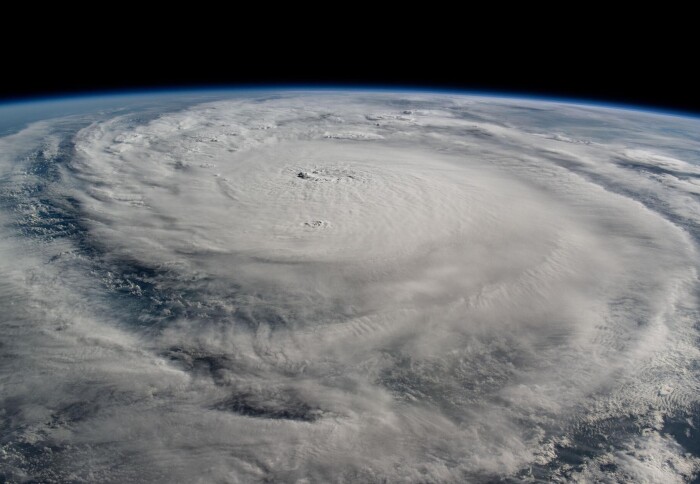Climate change behind almost half cost of Milton and Helene damage in Florida

Research into the role of climate change in the economic losses inflicted by two US hurricanes has revealed the devastating cost of inaction.
Human-caused climate change caused almost half of the direct economic damages linked to back-to-back hurricanes Helene and Milton in Florida, two rapid impact attribution studies have found.
The innovative analysis by researchers at Imperial College London reveals that climate change, driven primarily by the burning of fossil fuels, added billions of dollars to the cost of both hurricanes in the so-called Sunshine State.
“This should be a wake-up call for anyone who thinks climate change is not important or too expensive to deal with.” Professor Ralf Toumi Director, Grantham Institute – Climate Change and the Environment
The studies highlight how climate change is already hurting economies, even with warming currently under the Paris agreement threshold of 1.5°C.
“We now have new tools that show the costs of inaction on climate change are substantial. With every fraction of a degree of warming, extreme weather events like Hurricanes Milton and Helene will become more powerful and cause more damage,” says Professor Ralf Toumi, Director of the Grantham Institute - Climate Change and the Environment and co-author of the studies.
“This should be a wake-up call for anyone who thinks climate change is not important or too expensive to deal with – the longer it takes the world to cut emissions, the costlier extreme weather will become.”
The role of climate change
Fuelled by warm sea temperatures in the Gulf of Mexico, Hurricane Milton intensified rapidly, fluctuating in strength before making landfall near Siesta Key in Sarasota County, Florida as a Category 3 hurricane on Wednesday evening.
Milton came just two weeks after Hurricane Helene hit the Florida Big Bend and carved a path of havoc across the US Southeast, killing at least 232 people.
To understand how human-caused climate change affected the economic damages inflicted by the hurricanes, researchers first investigated their powerful winds. Using the Imperial College Storm Model (IRIS) they determined that climate change increased Helene’s wind speeds at landfall by about 13mph or 11%, and Milton’s by almost 11mph or 10%.
This means that in a world without climate change, a Milton-type Category 3 hurricane would have instead made landfall as a weaker Category 2 hurricane.

The researchers then used this wind speed change, a previously published damage function and data on exposed value to estimate that 44% of the economic damages caused by Helene and 45% of the economic damages caused by Milton can be attributed to climate change.
From this they estimate that climate change caused almost half of the direct economic damages to assets, such as homes and other buildings, linked to Hurricanes Helene and Milton in the state of Florida.
“Even small changes to hurricane winds can result in large increases in damages,” says Dr Nathan Sparks, Research Associate, Department of Physics, Imperial College London and co-author of the studies.
“That is why impact attribution studies like these are so important – they help people understand that climate change is already having a vast destructive effect.”
Long-lasting impacts
While a range of factors add uncertainty to the finding, as the damage function is a simplification of expected hurricane losses in Florida, the researchers say the analysis likely underestimates the true cost of the hurricanes because it does not capture long-lasting economic impacts such as lost productivity and worsened health outcomes.
“The estimate of direct climate change contribution to damages is just a small snapshot of how much Florida will pay for Hurricanes Helene and Milton,” says Dr Emily Theokritoff from the Grantham Institute.
“From lost productivity to strained health systems to damaged infrastructure, the economic impacts will be felt for years.”
More broadly, the researchers say the studies highlights the increasing costs of extreme weather as fossil fuel emissions heat the climate. If warming reaches 3°C, climate impacts could reduce gross domestic product globally by 10%, but if warming is limited to 1.5°C, around two-thirds of the losses could be avoided, a study published this year found.
These are the first studies published as part of larger initiative by the Grantham Institute that will produce rapid attribution studies on impacts such as economic damages and lives lost as extreme weather events occur globally.
Read the analysis in full: Hurricane Helene and Hurricane Milton
Article text (excluding photos or graphics) © Imperial College London.
Photos and graphics subject to third party copyright used with permission or © Imperial College London.
Reporter
Conor McNally
The Grantham Institute for Climate Change
Sam Ezra Fraser-Baxter
The Grantham Institute for Climate Change